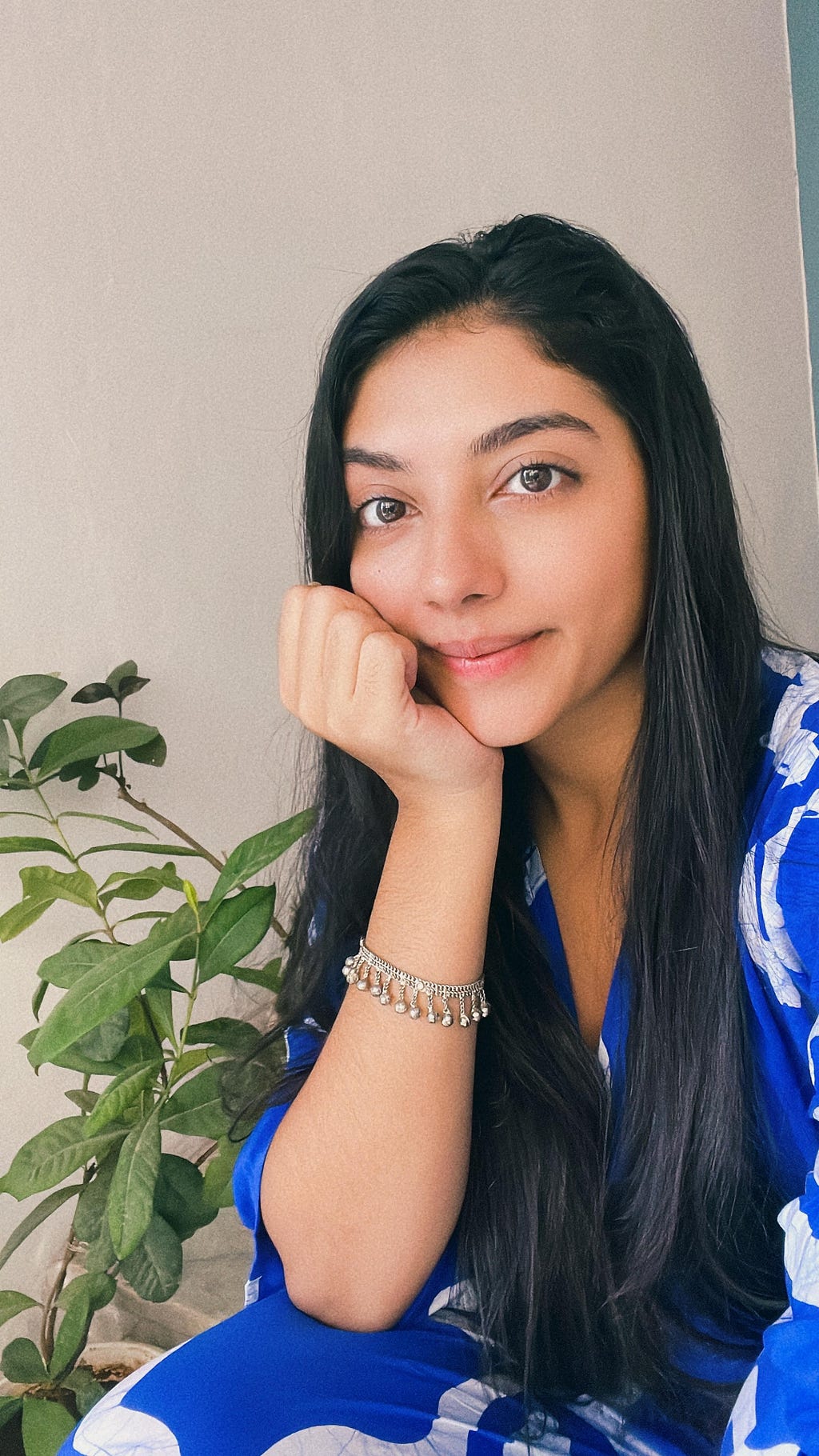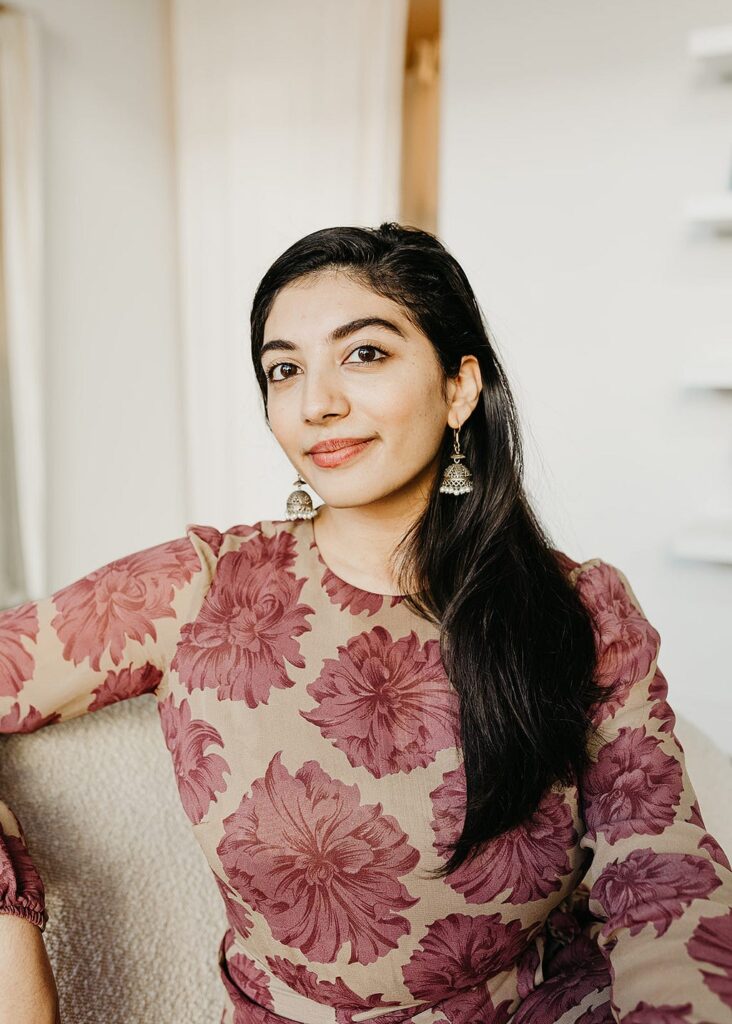An Interview With Monica Sanders
Patience. We produce fewer collections and with less volume. Patience is essential to arriving at pieces we feel truly proud of.
As ‘slow fashion’ grows in popularity, more fashion companies are jumping on the bandwagon. Renewable consumption has been gaining popularity for a while, as people recognize its importance, and many fashion companies want to be a part of this change. In this interview series, we are talking to business leaders in the fashion industry to discuss why they are embracing slow fashion and renewable consumption. As a part of this series, I had the distinct pleasure of interviewing Sofiya Deva.
Founder and CEO, Sofiya Deva, grew up in a combination of India, New York and Dallas, and has felt like a global citizen for as long as she can remember. She’s been a yoga teacher, a magazine editor, a creative director and a marketing exec, but at her heart, has always dreamed of creating a smaller, stranger world. Inspired by travel, the strength of women in shaping community, and the artistic process of cross pollinating cultural currents, she created The Postcard Edit as a way for people to discover, shop and support designers off the beaten path.
Thank you so much for doing this with us! Before we dig in, our readers would like to get to know you a bit more. Can you tell us a bit about your childhood “backstory”?
My family immigrated to the U.S. from India when I was five years old. We then lived in NY and Texas. As an adult, I’ve always had a terrible case of wanderlust, and meditated often on the relationship between a sense of heritage and roots, and identity as a kind of intrinsic diaspora. I’ve felt scattered, shaped and restored by my ability to find beauty and connection in many different places and cultures.
Can you tell us the story about what led you to this particular career path?
I had a very fast paced lifestyle as a marketing exec, and began to really question the culture of consumption we were steeped in. I craved a more slow, intentional, and communal way of life. At the same time, I longed to bridge between my Indian and American identities. It was a leap of faith, but I left my agency and started an artisan made accessory brand, to create dignified livelihoods for block and screen printers in Jaipur (one of India’s most legion craft hubs), while inspiring a mindful day-to-day for our customers.
Can you share the most interesting story that happened to you since you began your career?
The launch of my brand coincided with the pandemic, and it was quite the adventure! Managing a very decentralized supply chain in India from WhatsApp while learning about the challenges of handmade goods — quality control, dependence on optimal climate conditions, artistic temperaments, and costly cycles of product design — made for a very steep learning curve. But it also instilled in me a deep respect for the field, those who persevere in it, and the new models emerging, as we carry the world of traditional craft into the future.
You are a successful business leader. Which three character traits do you think were most instrumental to your success? Can you please share a story or example for each?
The willingness to learn, question my initial assumptions, and adapt with new information has been critical to my success.
After the pandemic, I took a six month r&d trip across Asia. As I traveled, I met with countless other social entrepreneurs, craft clusters, community organizers and designers. I kept asking myself, what’s the best way to scale both profit and impact? Is our current model the most effective way of going about it? How do we reflect the need for an interconnected and holistic approach to sustainability, that factors in representation, materiality and market demand?
Along the way, I realized that the best way we could support makers was by supporting the local “translators” who were employing them, and offering a fresh vision and relevance to the craft lineage.
I ended up rebooting the brand as a discovery platform for underrepresented designers in the brand’s current incarnation as The Postcard Edit.
What do you think makes your company stand out? Can you share a story?
We’re the only marketplace, featuring exclusively designers of color, women and voices from the ethnic diaspora, and we marry our dual love for travel and fashion, to share best in class looks and pieces from different global destinations.
Our most recent curated collection is all from the capital city of Sri Lanka, Colombo and consists of hand crafted techniques like Batik; and sustainable production practices like zero waste and up cycling; all sourced from female founded and community centric businesses.
Do you have a favorite “Life Lesson Quote”? Can you share a story of how that was relevant to you in your life?
I love the Lilla Watson quote, “If you have come here to help me you are wasting your time, but if you have come because your liberation is bound up with mine, then let us work together.”
It’s such a beautiful reminder that when we set out to help, or do good, it’s less for the other’s benefit, and more for the collective. When we move with that in mind, and include our own joy in the process, we have so much more energy, creativity and fun. 🙂
Who is your fashion hero or heroine? Why?
I’m a big fan of Aurora James. She’s got the heart of an artist, and the sensibility of an activist. Her 15% pledge helped initiate sweeping change in retail, and she’s done it in a way that feels so personal and thoughtful.
Why did you decide to create and use a sustainable business model for your fashion brand?
I see style as, personal narrative. A mutable philosophy and way to express one’s unique sense of belonging. My closet is a mix tape of all the places and moments I’ve experienced and been moved by. Fashion is such an intimate expression of who I am, and where I come from that it only follows that how it’s made, and who makes it matters deeply. If it’s over produced and exploitative, which so much of fashion is, that’s also a reflection of me. The more I became aware of the dysfunctions and abuses of the industry, the more I felt motivated to pioneer an alternative model.
What are three things we should all know about “slow fashion”?
We need customer engagement, in the form of questions, support and patience. If we want to transition from fast fashion to fair, or slow, fashion, then we also need to be willing to give up some of the convenience and excess we’ve become accustomed to. A slow fashion piece may not arrive at your door in 2 days for $20. It may not even be made until you order it, and then, if it’s made by hand or by a well paid team, it could take up to 4 weeks and cost $100. However, it will likely last longer, be higher quality and have a more positive impact.
The other important thing to remember is that slow fashion isn’t just about buying differently; it’s a cultural shift that likely also includes increasing wears of what you already have, mending clothes, and thrifting.
Finally, I would add that the revolution is really inside out. The industry follows consumer demand, so if customers more fully participate in socially conscious fashion, and back that up with the ability to discern between sincere efforts and green washing, the center of power will also shift accordingly.
Can you please explain how it can be fashionable to buy less, wait a little longer, or even repair clothing?
I’ve always felt that style has very little to do with the labels you can afford, or the novelty you chase. Style is a complex and unapologetic expression of how you feel, where you come from, and what you aspire to. It’s about the courage to take up space, be seen, and take playful risks with what’s possible. When you approach it like that, heirloom pieces, found pieces, patched pieces become so precious, and are not concessions, but opportunities to shine a little brighter.

Thank you for all that. Here is the main question of our interview. What are your “5 Things You Need To Lead a Successful Slow Fashion Brand”. Please share a story or example for each.
1 . Patience. We produce fewer collections and with less volume. Patience is essential to arriving at pieces we feel truly proud of.
2 . Solidarity. We couldn’t do what we do without the support of a strong community, bonded by shared values and a desire to really shift the status quo.
3 . Artistry. We’re big believers in showing, rather than simply telling. The work should speak for itself and be as visually arresting as it is ethically made.
4 . Business Savvy. The fashion industry’s current economic logic isn’t really suited to the lower margins, small batches of slow fashion, so brands going against the grain need to be smart about how they expend resources, test products and go to market.
5 . Curiosity. There’s no one template for slow fashion, so we have to continue to ask questions, experiment and play with different models. Taking an extensive r&d trip with more inquiry and open mindedness than agenda really served me in unlocking new opportunities and relationships that I’d never have discovered had I been overly fixated on one model.
You are a person of great influence. If you could start a movement that would bring the most amount of good to the most amount of people, what would that be? You never know what your idea can trigger. 🙂
I already have 🙂 It’s called The Postcard Edit.
How can our readers further follow your work online?
We’d love for everyone to sign up for the waitlist on our website, to be the first to know about special offers and new drops, and to pre-order their favorite piece.
Thank you for these fantastic insights. We greatly appreciate the time you spent on this.
About the Interviewer: Monica Sanders JD, LL.M, is the founder of “The Undivide Project”, an organization dedicated to creating climate resilience in underserved communities using good tech and the power of the Internet. She holds faculty roles at the Georgetown University Law Center and the Tulane University Disaster Resilience Leadership Academy. Professor Sanders also serves on several UN agency working groups. As an attorney, Monica has held senior roles in all three branches of government, private industry, and nonprofits. In her previous life, she was a journalist for seven years and the recipient of several awards, including an Emmy. Now the New Orleans native spends her time in solidarity with and championing change for those on the frontlines of climate change and digital divestment. Learn more about how to join her at: www.theundivideproject.org
Sofiya Deva Of The Postcard Edit On Why They Are Embracing Slow Fashion and Renewable Consumption was originally published in Authority Magazine on Medium, where people are continuing the conversation by highlighting and responding to this story.
